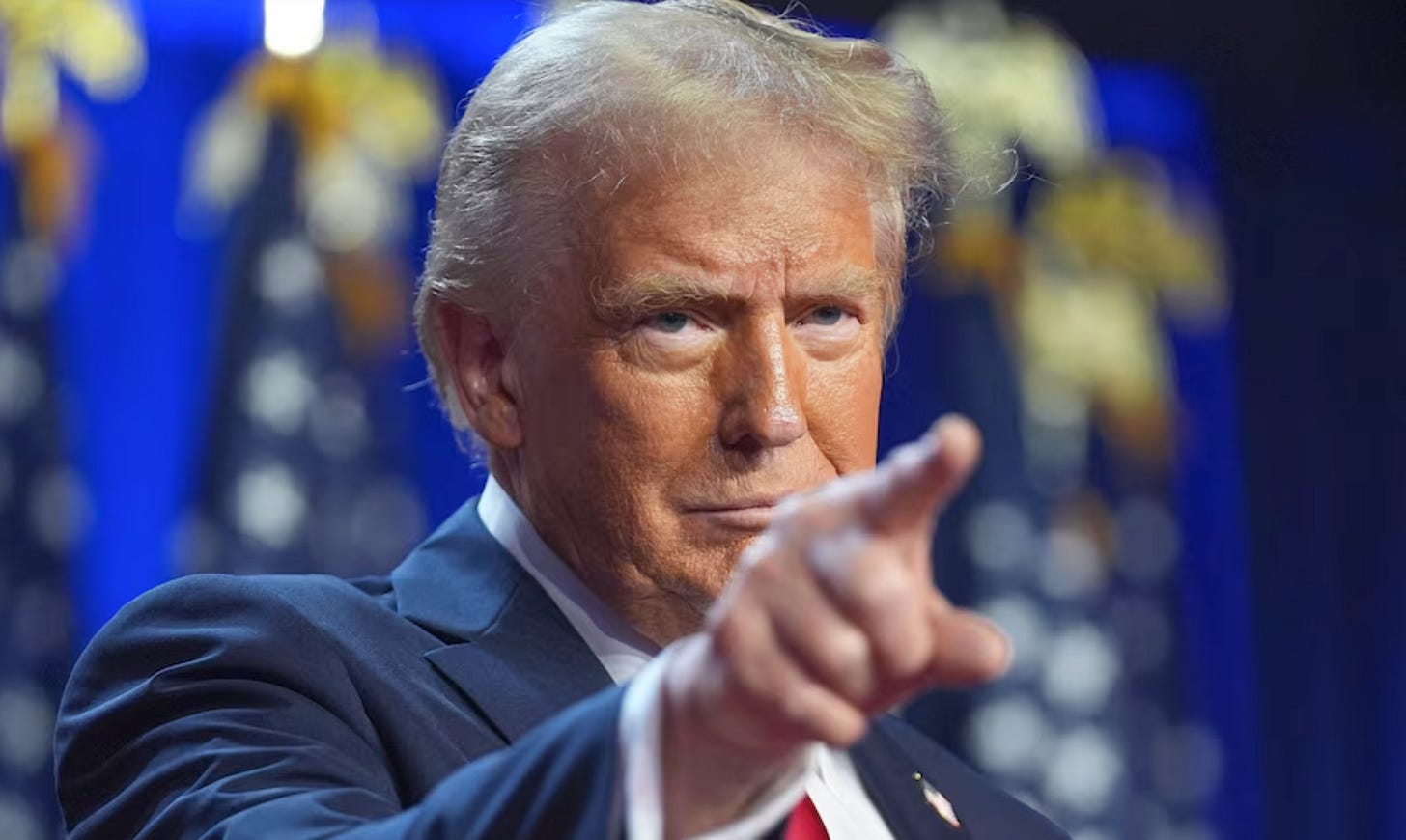What If Trump Isn’t Hiding the Epstein Files—But Holding the Line?
The former president may not be concealing the truth—but strategically delaying its detonation.
By Nick Holt
The only thing more dangerous than a cover-up is a man with the detonator—and the discipline not to use it.
That’s what we may be witnessing now.
The Epstein files are back. The names. The footage. The missing clients. The pressure to release it is mounting. But Trump, once again, isn’t doing what his allies—or enemies—expect.
What if the delay isn’t cowardice?
What if it’s leverage?
For years, critics tried to tie Trump to Epstein. But unlike Clinton, Gates, or Prince Andrew, Trump doesn’t appear on the infamous flight logs. He’s even alleged to have banned Epstein from Mar-a-Lago after an incident involving a young girl. According to the Palm Beach Police Department, he was also the only major figure who voluntarily cooperated with their 2009 investigation.
This isn’t exoneration. But it is context.
Which leads to a more interesting question:
If Trump isn’t implicated—why hasn’t he used the Epstein files to destroy the establishment?
Because he might not be ready to destroy it.
Not yet.
The Epstein network wasn’t just deviant—it was structural. Its tentacles reached into think tanks, royal families, billion-dollar foundations, and scientific institutions. Its victims were real, but so were its protectors.
The real scandal isn’t what we know.
It’s what we’ve been prevented from knowing.
That’s what Trump appears to be holding: not just evidence, but existential liability—for everyone.
You don’t unleash that casually. You hold it. You let the system know you can detonate it. And you wait.
There’s a brutal kind of logic here.
If Trump believes, as he says, that he was put in power to dismantle the globalist cartel, then the Epstein file isn’t a bombshell—it’s the keystone. Pull it, and everything collapses.
He hasn’t done that. Yet.
He’s teased document releases. He’s told Bondi and the DOJ to “release everything.”
He’s called the media complicit.
He’s whispered about “names people won’t believe.”
But he hasn’t pulled the pin.
And that hesitation may be the most strategic thing he’s done.
The base is growing restless. They want answers. They want names. They want to watch the uniparty burn.
But Trump knows the truth: if you burn it all down, there’s no throne left to sit on.
So he’s stalling. Testing pressure points. Letting the DOJ, the FBI, and the press box themselves in with denials. Every backpedal, every retraction, every bureaucratic stall is fuel. Eventually, the contradictions collapse under their own weight.
And when that happens, Trump can claim he tried transparency. He can say the system chose secrecy. And then, finally, he’ll have license to light the fuse.
This isn’t the posture of a saint. It’s the posture of a man with a grenade in his jacket and a hundred enemies in the room.
To release the Epstein files is to shatter the illusion that power is decent, institutional, or earned.
To withhold them is to let that illusion persist—until it no longer serves you.
Trump may be doing something no one expects:
Not hiding the truth.
Not revealing it.
But holding it—just long enough to see who flinches first.
The Modern Enquirer exists to question what legacy media protects. If you find this reporting valuable, consider becoming a paid subscriber.




Inasmuch as Trump always has “100 enemies in the room“ this stall with the Epstein files maybe critical for winning in an incredibly critical time in this war for the American future. While Lincoln had live armies fighting in the field he also had a political genius that kept foreign affairs, media hostilities, congressional spasms, and public opinion from aiding and abetting the enemy…but it was only apparent in hindsight. Your perspective is right on target. The chapter on political genius comparing Trump and Lincoln just can’t be written yet…because Trump has three years to go.